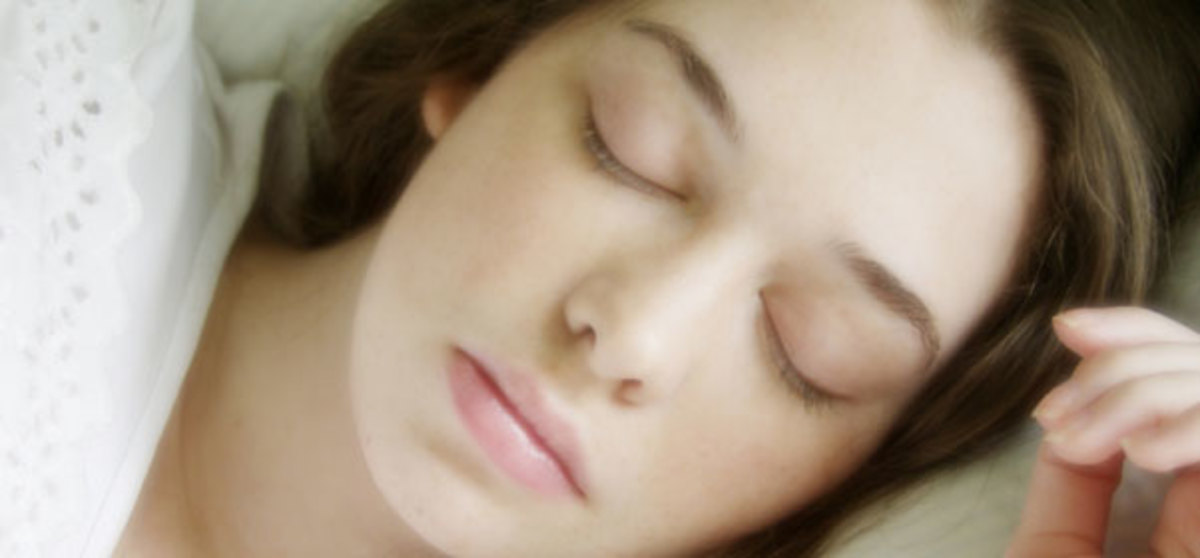Sleep: How Many Hours Do You Need?
Adults Need 7 to 9 Hours Of Sleep Per Night
How Many Hours Of Sleep Do You Need?
The amount of sleep you need every night depends on a whole bunch of factors. Generally, the younger you are the more sleep you'll need, and this amount decreases as you age. A newborn baby needs 14 to 17 hours of sleep, and this decreases to 7 to 9 hours of sleep adults aged 26 to 64 (National Sleep Foundation, 20151).
Other factors include:
- existing sleep debt - increases amount of sleep required
- quality of sleep - poorer quality increases amount of sleep required
- health condition - poorer health increases amount of sleep required
- daily activity and stress levels - greater activity and stress increases amount of sleep required
How did the National Sleep Foundation come up with this figure of 7 to 9 hours for adults? They surveyed a panel of sleep experts. So, not really a very scientific approach. Rather than being based on studies, it's actually just the collective opinion of a group of people.
So where then did this recommendation come from?
Well, it's likely from the fact that the recommended number of REM sleep cycles per day is 5. And the average period of one sleep cycle is 90 minutes. 5 times 90, 450, i.e. 7 and a half hours. So if you happen to have shorter REM sleep cycles, you might get away with 7 hours of sleep. But for everyone else that has longer REM sleep cycles or take some time between each cycle, the amount of sleep required increase, i.e. to about 9 hours.
What If You Sleep Less?
Bad things happen if you don't get enough sleep.
Not getting enough sleep will result in sleep debt building up. As this sleep debt increases, so does the severity of the associated negative effects.
Short term sleep debt effects include:
- impaired cognitive function
- impaired immune system
- impaired muscle growth and strength
Long term sleep debt effects are associated with greater likelihoods of obesity, high blood pressure, diabetes, coronary heart disease, stroke, frequent mental distress, and death (CDC, 20162).
Sleep debt accumulates, so if you're missing out on one hour of sleep every single night, you can expect the negative effects to get worse and worse. A lot of people build up their sleep debt during the week and hope to pay it off over the weekend (catching up on sleep). While the extra sleep over the weekend helps, you'll still be suffering the increasingly negative effects throughout the week itself.

Does Interrupted Sleep Count?
No it doesn't.
A study3 from Tel Aviv University showed that having half of your sleep interrupted had the same negative effects as just getting half the amount of sleep. In other words, if you attempted to sleep peacefully for 6 REM sleep cycles but I woke you up during 3 of those cycles, you'd effectively be getting only 3 REM sleep cycles.
So unfortunately you can't just take a power nap whenever you feel drowsy and expect you body to automatically do the sleep math for you leaving you fresh and well rested.

What If You Sleep More?
Bad things happen if you sleep too much as well!
You can't just take the more is better approach and just sleep as much as possible, thinking hey, definitely no sleep debt there.
Oversleeping is related to diabetes, obesity, headaches, back pain, depression, heart disease and even death.
How much is too much?
Sticking to the recommended 5 REM sleep cycles should be fine. If you have the luxury of sleeping more than 9 hours every single day, then be on the lookout for the negative effects of oversleeping.
References
1. National Sleep Foundation’s Updated Sleep Duration Recommendations: Final Report, 2015. Sleep Health: Journal of the National Sleep Foundation, 1 (4), pp. 233–243.
2. Prevalence Of Healthy Sleep Duration Among Adults, 2016. Morbidity And Mortal Weekly Report, 65 (6), pp. 137–141.
3. Effects of one night of induced night-wakings versus sleep restriction on sustained attention and mood: a pilot study, 2014. Sleep Medicine, 15 (7), pp. 825-832.








